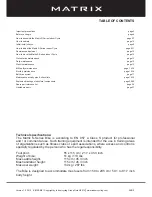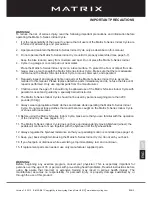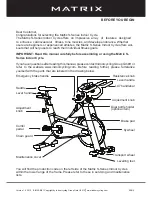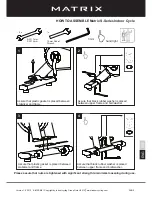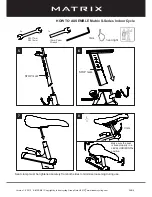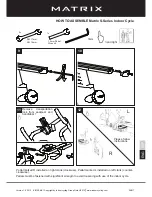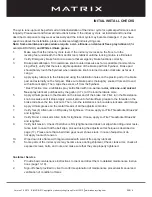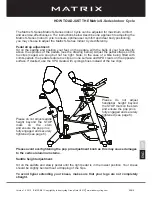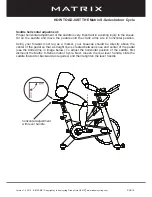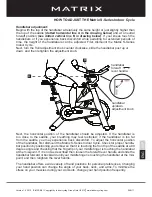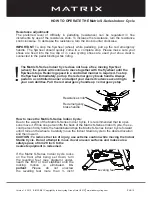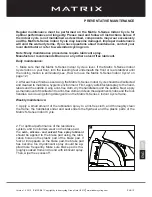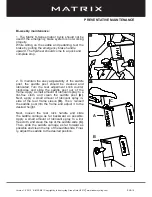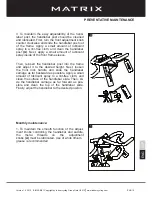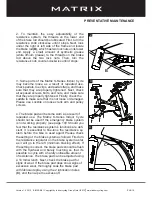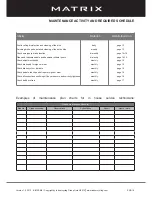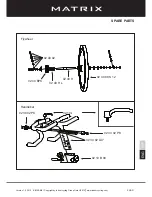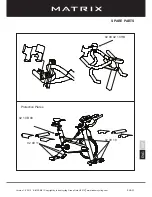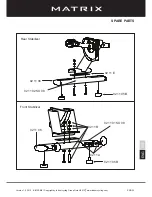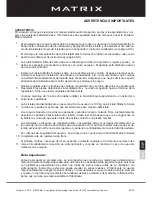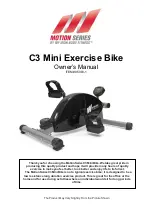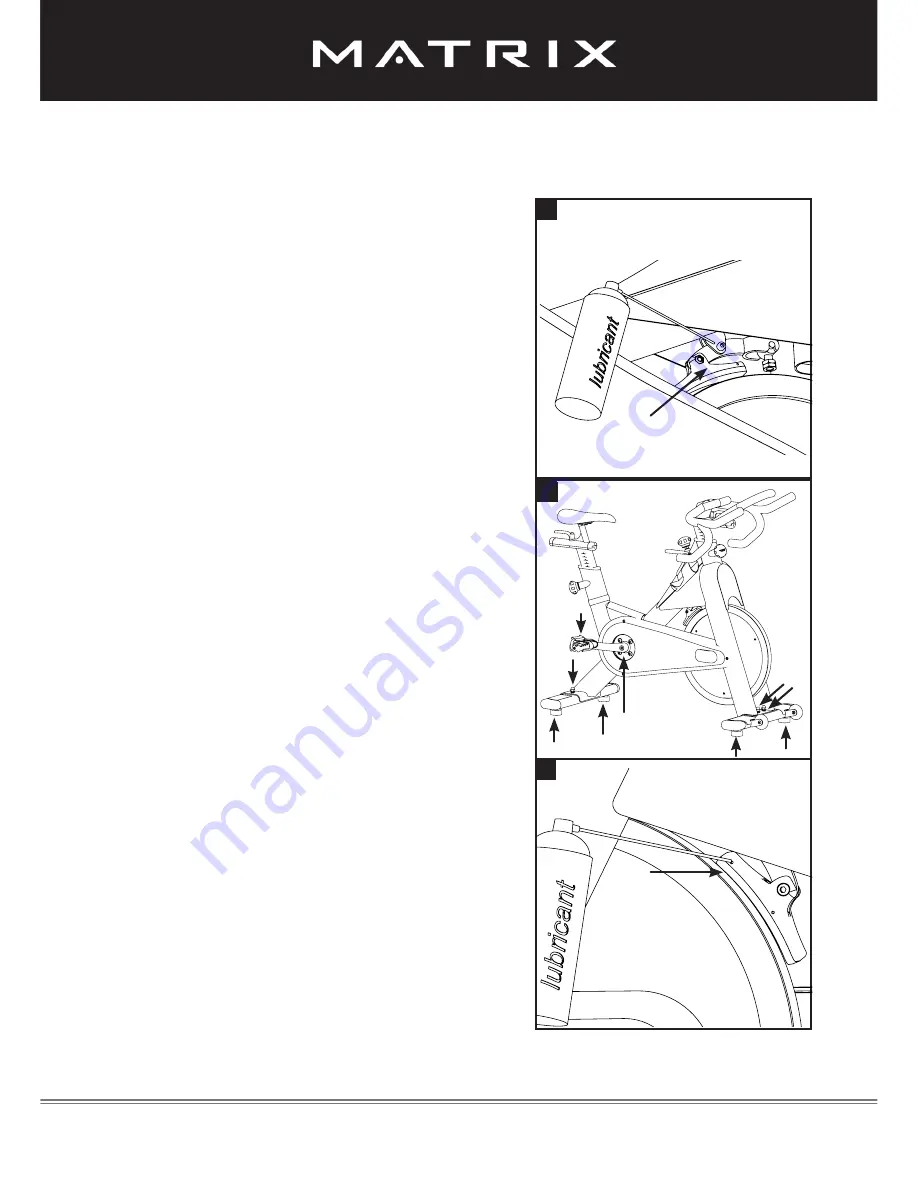
Version 1.0 2013 IC-MXSB-01 Copyright by Indoorcycling Group GmbH 2013
|
www.indoorcycling.com
ENG 16
2
4. The brake pad will become worn as a result of
repeated use. The Matrix S-Series Indoor Cycle
should not be used if the emergency brake system
is not working properly (see page 14)! Should you
feel that the resistance system’s functions are defi-
cient, it is essential to fine-tune the resistance sy-
stem before the bike is used again! Please check
the setting of the brake system as follows: First turn
the resistance regulator on the brake system as far
as it will go to the left (minimum braking effect). If
the setting is correct, the brake pads should be flush
with the flywheel and barely touching so that it’s
possible to cycle with a hardly noticeable amount
of resistance. The brake pad can be adjusted using
a 10 mm wrench. Next, check the brake pad for
signs of wear. If the brake pad does show signs of
excessive wear, thoroughly soak the brake pad
with lubricant spray using the 2 lubrication holes
(C)
, and then wipe the excess off.
3. Some parts of the Matrix S-Series Indoor Cycle
may become loose as a result of repeated use.
Check pedals, toe clips, and pedal straps, and make
sure that they are properly tightened. Next, check
all exposed screws, bolts, and nuts, and make sure
that they are properly tightened. Finally, check the
saddle to make sure that it is not loose or damaged.
Please use Locktite on loose crank arm and pulley
screws.
5
4
C
3
2. To maintain the easy adjustability of the
resistance system, the threads on the lower end
of the brake rod should be lubricated. First, turn the
resistance knob clockwise until it stops. Next, look
under the right or left side of the frame and locate
the brake rod
(B),
which has two lock nuts on its lower
end. Apply a small amount of synthetic grease
(white lithium grease) to the threads on the brake
rod above the two lock nuts. Then, turn the
resistance knob counter-clockwise until it stops.
PREVENTATIVE MAINTENANCE
B

